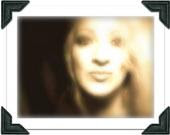By MARTHA IRVINE, AP National Writer
Mon Jan 2, 1:24 PM ET
When it comes to conjuring a snowstorm, 8-year-old Taylor Zelman has more than a few tricks aimed at getting the day off from school.
ADVERTISEMENT
She wears her pajamas inside out and backward. She runs around the kitchen table five times and flushes ice cubes down the toilet. And as she goes to sleep on winter school nights, she faithfully repeats, "I want it to snow, I want it to snow, I want it to snow."
"My teacher told me to throw an ice cube at a tree, but I haven't tried it yet," says the third-grader from Leesburg, Va. "I'm sure there's tons more I could do."
Indeed, there are many snow rituals kids and adults alike use in hopes of getting a day off from school or work. Some sing songs and perform arm-flailing snow dances, while others place white objects or silverware underneath their pillows.
Chris Conti fondly recalls his elementary school days in Madison, Conn., when — wearing only underwear — he would run around the house several times and then lie down on the ground and count to 30, or "15 if there was already snow on the ground because it was cold," says Conti, who is now 24 and lives in Massachusetts.
In Gahanna, Ohio, high school English teacher Mary Lou Purdy keeps a snow globe that says "snow days" on her office desk. She and colleagues regularly shake it as they walk by.
Half the fun, Purdy says, is anticipating the possibility of a day off. "It breaks up the monotony of winter. Otherwise, it's one gray day after another," she says. "There's something so comforting about getting to roll over and stay under the covers — and enjoy the serenity of the snow."
Hallie Rozansky, a 16-year-old high school junior in Abington, Pa., agrees and says she has become more likely to try the pajama or silverware tricks as she has gotten older.
"We definitely take it more seriously, because extra sleep is good," Hallie says, referring to herself and her 13-year-old brother, Robbie. "And we also have more time to study."
But not everyone who uses snow rituals is after a day off.
Skip Traynor, an avid wintertime hunter and fisherman from Alma, Mich., shaves ice cubes and sprinkles them in the trees behind his house to influence the weather. For him, the snow is helpful for tracking animals.
He also throws ice cubes into a nearby lake to encourage it to freeze — but concedes that he makes sure to do this under the cover of darkness.
"Do I really want anyone to see me conducting my ritual?" asks Traynor, who is 58 and first learned the snow-conjuring tricks from his grandfather.
Farther north, in Michigan's Upper Peninsula, locals who depend on snow to attract skiers and snowmobilers have the "Heikki Lunta" song and dance, a Finnish-American tradition named for the snow god Hank Snow.
Many are certain it works.
"Heikki's got the real snow mojo," says Bob Glantz, who grew up in the U.P., as it is known, and now lives in Berkeley, Calif. In 1990, he says, a friend played the song at a radio station near his current home, only to have it snow a few minutes later in San Francisco, where flakes rarely fall.
Taylor, the third-grader in Virginia, also is convinced her rituals have an effect — and is especially sold on ice-cube flushing. "It goes down to the ocean and it freezes up the ocean," she says. "So that's why I think it'll snow."
Even those who doubt their own snow rituals say there is something about trying that makes them feel better. If nothing else, hope becomes a bonding point, says Stuart Vyse, author of the book "Believing in Magic: The Psychology of Superstition."
"We are susceptible to doing things that give us a sense of control over the world, even if we know it's not true," says Vyse, a psychology professor at Connecticut College. He compares snow rituals to baseball players and fans who wear "rally caps" when they want their team to score some runs.
"It both feels good and give them some sense that it might happen — multiplied by all the people who are flushing the ice cubes down the toilet," he says, chuckling.
There probably are just as many out there who chant and curse against bad winter weather.
Nicole Laster is among those who had more appreciation for snow — and for wearing her pajamas inside out and backward — as a kid in Wyckoff, N.J.
She is now 24 and works for a public relations firm in Paramus, near her hometown. And these days, she says, "snow on weekdays only means my shoes will be wet and my pants will be soggy when I get to work — IF I ever get there."
___
1/03/2006
Some Sing, Others Dance to Get Snow to Fall
Subscribe to:
Post Comments (Atom)





No comments:
Post a Comment